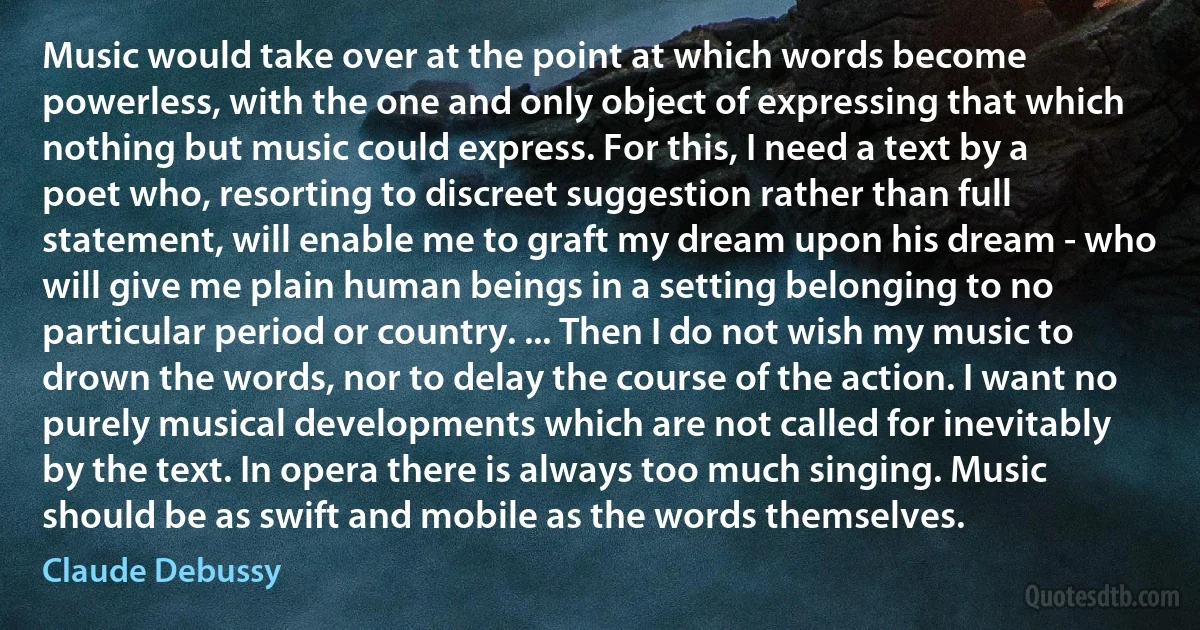Plain Quotes - page 36
Max Beer, in his History of British Socialism, points out that Bacon looked for the happiness of mankind chiefly in the application of science and industry. But by now it is plain that if this alone were sufficient, we could all live in heaven tomorrow. Beer points out that More, on the other hand, looked to social reform and religious ethics to transform society; and it is equally plain that if the souls of men could be transformed without altering their material and institutional activities, Christianity, Mohammedanism, and Buddhism might have created an earthly paradise almost any time this last two thousand years. The truth is, as Beer sees, that these two conceptions are still at war with each other: idealism and science continue to function in separate compartments; and yet "the happiness of man on earth" depends upon their combination.

Lewis Mumford
When you fully grasp the plain truth that 545 people exercise complete power over the federal government, then it must follow that what exists is what they want to exist. If the tax code is unfair, it's because they want it unfair. If the budget is in the red, it's because they want it in the red. If the Marines are in Lebanon, it's because they want them in Lebanon.

Charley Reese
The classics of Socialist and Anarchist literature seem at mid-century to speak a foolish and naïve language to minds hardened by two generations of realpolitik.
It was not just the sophisticates and the reformers who had no belief in the validity or endurance of the system. Everybody in what they used to call the master class, from the Pope to William Howard Taft, believed in his bones that the days of his kind were strictly numbered and found wanting. What happened instead of apocalypse and judgment was a long-drawn-out apocalypse of counterrevolution against the promise and potential of a humane civilization. It began with the world economic crisis of 1912, and the First and Second World Wars and the Bolshevik Revolution have been episodes, always increasing in violence and plain immorality, in the struggle of our civilization to suppress its own potential.

Kenneth Rexroth
For four hundred years the human race has not made a step but what has left its plain vestige behind. We enter now upon great centuries. The sixteenth century will be known as the age of painters, the seventeenth will be termed the age of writers, the eighteenth the age of philosophers, the nineteenth the age of apostles and prophets. To satisfy the nineteenth century, it is necessary to be the painter of the sixteenth, the writer of the seventeenth, the philosopher of the eighteenth; and it is also necessary, like Louis Blane, to have the innate and holy love of humanity which constitutes an apostolate, and opens up a prophetic vista into the future. In the twentieth century war will be dead, the scaffold will be dead, animosity will be dead, royalty will be dead, and dogmas will be dead; but Man will live. For all there will be but one country-that country the whole earth; for all there will be but one hope-that hope the whole heaven.

Victor Hugo
They say any artist paying six dollars may exhibit
Mr. Richard Mutt [= Long time scholars recognize R. Mutt was Duchamp himself; a growing number attribute credit Elsa Von Freytag-Loringhoven, a bisexual dada artist living in New York who as a woman, needed a pseudonym to get into the Armory Exhibition]. The object was photographed by Alfred Steiglitz before disappearing and was never was exhibited.
What were the grounds for refusing Mr. Mutt fountain:
1. Some contented it was immoral, vulgar.
2. Others, it was plagiarism, a plain piece of plumbing.

Marcel Duchamp
Despite the disturbing rhetoric coming out of the Kremlin, the facts are plain for everybody to see. We're not attacking Russia; we're helping Ukraine defend itself against Russian aggression.
And just as Putin chose to launch this brutal invasion, he could make the choice to end this brutal invasion.
Russia is the aggressor. No if, ands, or buts about it. Russia is the aggressor. And the world must and will hold Russia accountable.

Joe Biden
Many of us affect a tone of irony about gadgets, as if we lived always in realms above and dealt with trifles only during rare descents from sublime thoughts. The truth is that more and more of the important things in life turn on pinpoints. Our frustrations begin in trivialities - a telephone out of order, a car that will not start, a claim check whose number has been misread. The thing in cellophane that cannot be got at - plain to the sight but sealed like an egg - is the modern version of the torture of Tantalus. Catastrophes we will deal with like heroes, but the bottle top that defies us saps our morale, like the tiny arrows of the Lilliputians that maddened Gulliver and set his strength at naught.

Jacques Barzun
We have come with our eyes shut, following Major Wynkoop's handful of men, like coming through the fire. All we ask is that we have peace with the whites. We want to hold you by the hand. You are our father. We have been traveling through a cloud. The sky has been dark ever since the war began. These braves who are with me are willing to do what I say. We want to take good tidings home to our people, that they may sleep in peace. I want you to give all these chiefs of the soldiers here to understand that we are for peace, and that we have made peace, that we may not be mistaken by them for enemies. I have not come here with a little wolf bark, but have come to talk plain with you.

Black Kettle
The Pilgrim's Progress is composed in the lowest style of English, without slang or false grammar. If you were to polish it, you would at once destroy the reality of the vision. For works of imagination should be written in very plain language; the more purely imaginative they are the more necessary it is to be plain.

Samuel Taylor Coleridge
[T]he Jewish Nigger, Lassalle... It is now quite plain to me - as the shape of his head and the way his hair grows also testify - that he is descended from the negroes who accompanied Moses' flight from Egypt (unless his mother or paternal grandmother interbred with a nigger). Now, this blend of Jewishness and Germanness, on the one hand, and basic negroid stock, on the other, must inevitably give rise to a peculiar product. The fellow's importunity is also nigger-like.

Karl Marx
He that would seriously set upon the search of truth, ought in the first place to prepare his mind with a love of it. For he that loves it not, will not take much pains to get it; nor be much concerned when he misses it. There is nobody in the commonwealth of learning who does not profess himself a lover of truth: and there is not a rational creature that would not take it amiss to be thought otherwise of. And yet, for all this, one may truly say, that there are very few lovers of truth, for truth's sake, even amongst those who persuade themselves that they are so. How a man may know whether he be so in earnest, is worth inquiry: and I think there is one unerring mark of it, viz. The not entertaining any proposition with greater assurance than the proofs it is built upon will warrant. Whoever goes beyond this measure of assent, it is plain receives not the truth in the love of it; loves not truth for truth's sake, but for some other bye-end.

John Locke


